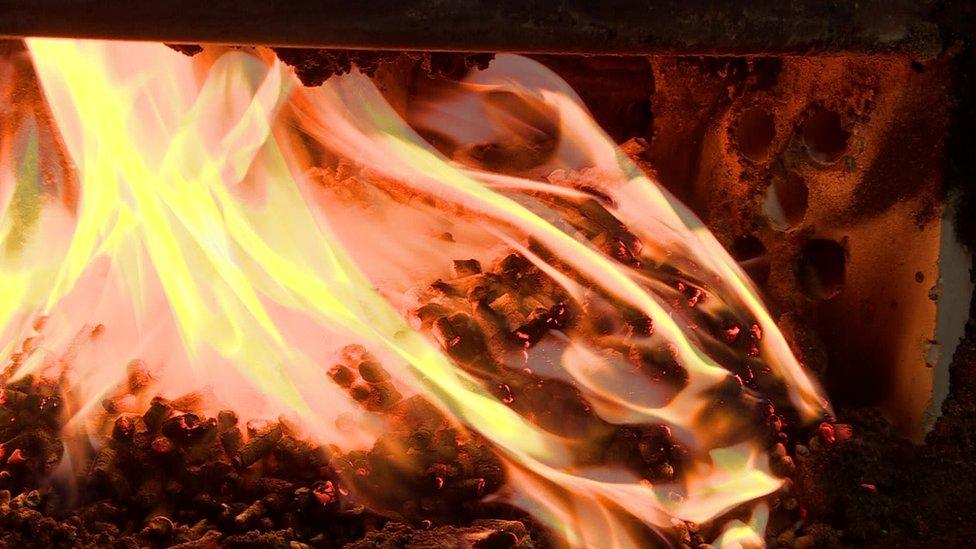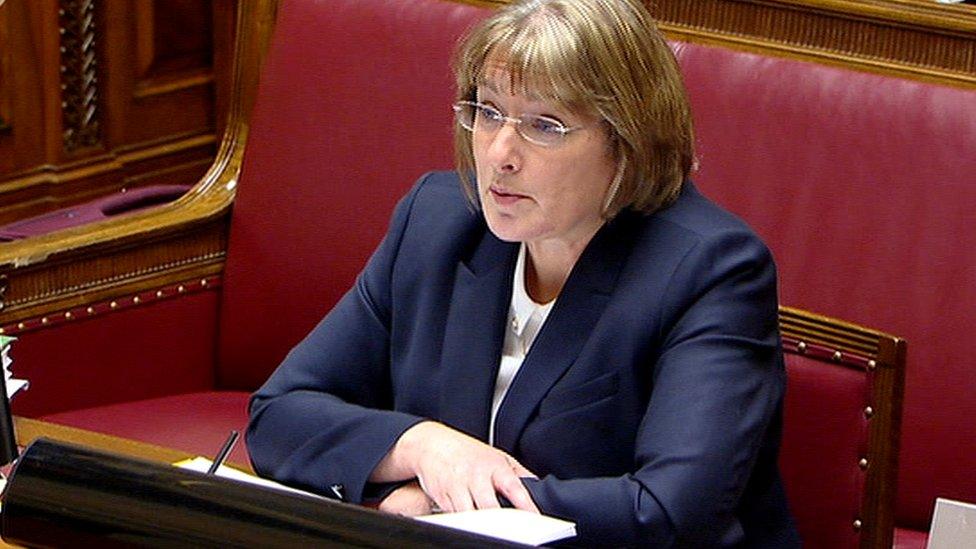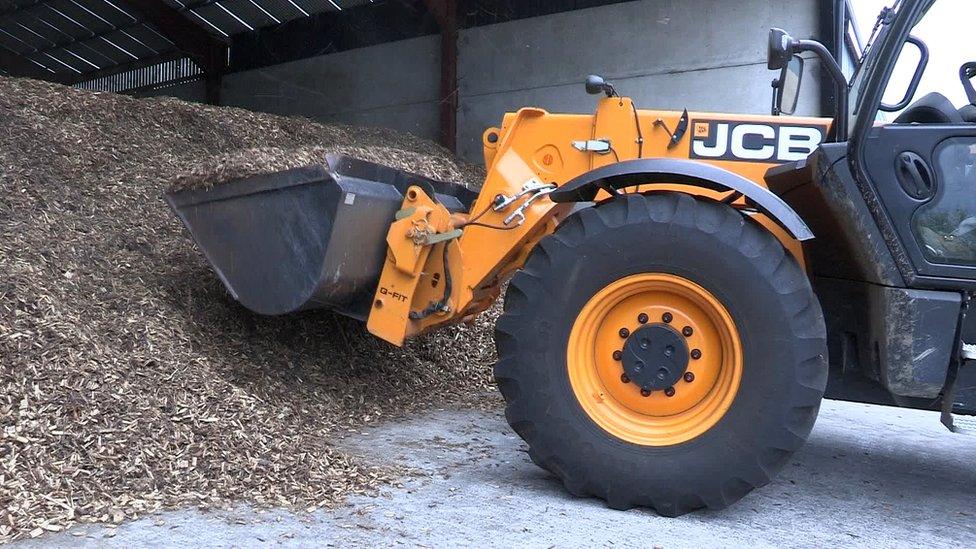RHI inquiry: Missing key sum 'does not look clever'
- Published

An inquiry is being held into the flawed green energy scheme
A senior civil servant has conceded that missing a basic sum that showed the fundamental flaw in a green energy scheme, does "not look too clever".
Fiona Hepper was giving evidence to the Renewable Heat Incentive inquiry.
Ms Hepper headed up the energy division within the Enterprise Department which was bringing the scheme in.
She said her team did not spot that the subsidy rate offered to businesses switching to biomass boilers was higher than the cost of the fuel.
That created the "burn to earn" incentive.
The mistake was made by specialist energy economists who had been hired to set the tariff.
Cambridge Economic Policy Associates Ltd (CEPA) has already said it should have caught the error.

Fiona Hepper said she would not have expected her team to have to "check basic arithmetic from consultants whose expertise we were buying in".
In her evidence to the inquiry on Tuesday, Ms Hepper said her officials had been "probing" the numbers sent to them by CEPA.
"We didn't spot that stuff wasn't adding up. I would have expected CEPA to check their figurework before they gave it to us," she said.
Ms Hepper said they had asked CEPA to justify their numbers and got a "comprehensive" explanation.
"I appreciate that doesn't look too clever in terms of some of that arithmetic not working through, but we were so focused on 'is the tariff right, how do we calculate it?' that maybe we didn't do some basic checks on their works," she said.
She said she would not have expected her team to have to "check basic arithmetic from consultants whose expertise we were buying in".
The figures made their way into departmental documents on the value and cost of the scheme.

The subsidy rate offered to businesses switching to biomass boilers was higher than the cost of the fuel
Earlier, Ms Hepper admitted that a £200m increase in the cost of RHI was not flagged with the then Enterprise Minister Arlene Foster.
She said Mrs Foster was not told that the projected bill for the scheme had risen.
The costs were in two different reports produced by CEPA, six months apart, in 2011/12.
Higher costings
The figures changed when tariff rates were raised after public consultation.
The minister had decided to proceed with work on the introduction of the scheme on the basis of the lower figure in the first report.
Ms Hepper said by the time the higher costings came in, work was continuing on the preparation of the scheme and officials involved in its scrutiny had been "content with the case that was made and the value for money basis of the final figures".
She said the final cost for Northern Ireland's RHI scheme was discussed at length at the casework committee of March 2012 that reviewed the proposal.
But she said she was not sure that the £200m increase had been specifically raised.
The scheme started in November 2012.
- Published7 November 2017

- Published7 November 2017

- Published23 October 2019
